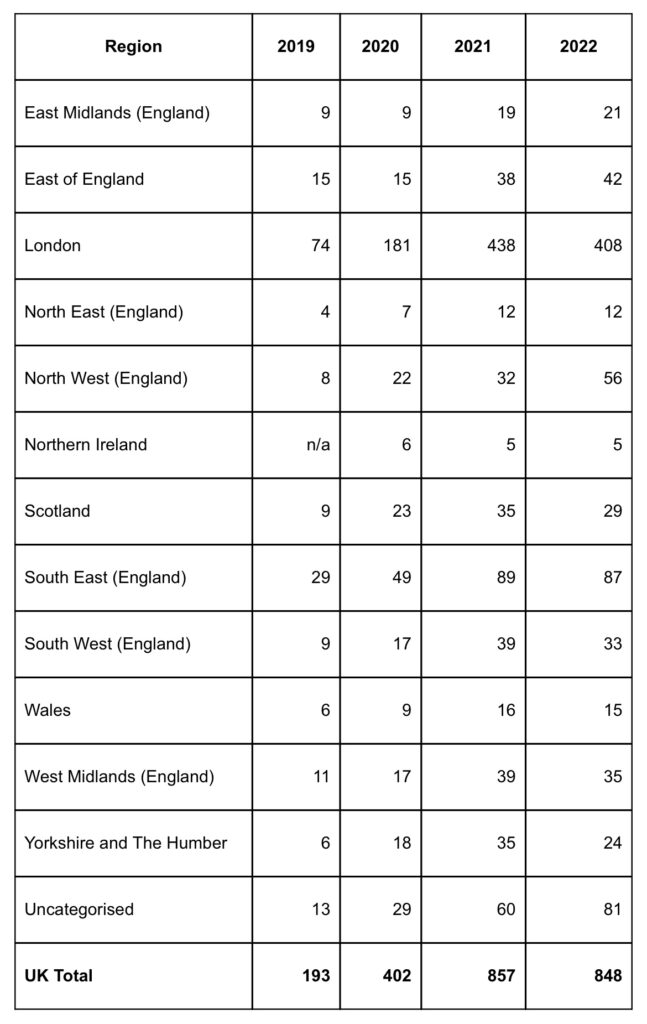New UK gaming incorporations more than quadruple from pre-pandemic levels

The number of new gaming companies incorporated in the UK has more than quadrupled when compared to pre-pandemic levels, according to analysis of Companies House data by leading audit, tax and consulting firm RSM UK.
Gaming incorporations reached 848* in 2022, broadly in line with the 857 incorporations in 2021, but 339% higher than the 193 in 2019. This upward trend is largely due to increased consumer demand for gaming during lockdown and as we emerged from the pandemic.
The data demonstrates gaming as a high growth area, with the UK accounting for the largest gaming sector in Europe, helped by incentives such as the Video Games Tax Relief (VGTR). London continues to account for the highest number of gaming incorporations but dropped slightly from 438 in 2021 to 408 in 2022. Seven of the thirteen regions in the UK saw an increase last year when compared to the prior year.
Richard Heap, partner at RSM UK, said: ‘There’s been a real sea change in the gaming industry over the past few years. Interest in the sector picked up significantly during lockdown when individuals were forced to stay indoors, but it’s encouraging to see that this trend has continued post-pandemic. The figures reflect the continued growth of the UK’s video games industry, as well as the strong demand for content from consumers which shows little signs of slowing down.
‘The rising popularity of the gaming industry is global, with this week’s Game Developers Conference in San Francisco expected to attract thousands of attendees. Gaming has fast become a phenomenon across all age groups and demographics, and there’s a real opportunity to capitalise on the industry as it expands into various platforms and emerging technologies.
‘Announcements in last week’s Spring Budget brought good news for the creative sector and shows the government recognises the importance the industry plays in the UK economy. For VGTR, the move to an expenditure credit regime is hugely welcomed and should help encourage investment, while the removal of the subcontracting limit of £1m per game should help simplify claims for larger gaming companies. These new measures will hopefully prompt a further rise in gaming incorporations in the future.’




